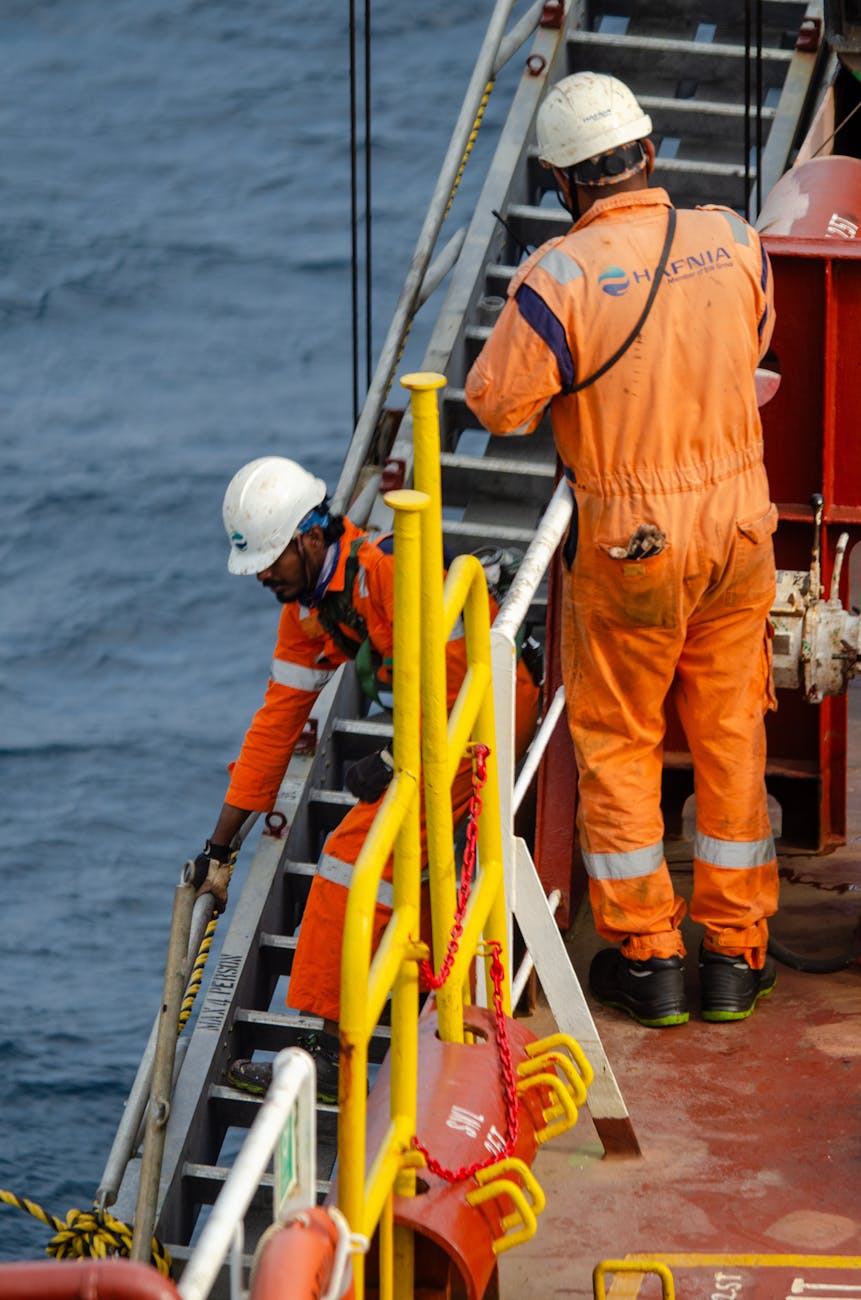
Offshore Courses with Placement
Introduction
Offshore jobs are among the most rewarding yet challenging career paths in the world. From oil rigs to deep-sea diving, these roles offer lucrative salaries, adventure, and global exposure. If you are considering an offshore career, enrolling in offshore courses with placement can give you a competitive edge. But what exactly are these courses, and why should you consider them? Let’s dive in!
What Are Offshore Courses?
Offshore courses are specialized training programs designed to prepare individuals for jobs in marine, oil & gas, and underwater sectors. These courses equip students with technical skills, safety training, and certifications required to work in offshore environments.
Who Should Consider Offshore Courses?
- Engineering graduates interested in marine and oil industries
- Safety professionals looking to specialize in offshore safety
- Skilled workers aiming for higher-paying offshore jobs
- Adventure seekers looking for a dynamic work environment
Why Choose Offshore Training?
Offshore careers are in high demand globally. The reasons to choose offshore training include:
- High salary packages
- Global career opportunities
- Job security in essential industries
- Comprehensive training with hands-on experience
Top Offshore Courses with Placement
1. Offshore Safety Training
Learn safety measures, emergency response, and risk assessment for offshore environments.
2. Marine Engineering Courses
Focused on designing, maintaining, and operating marine vessels.
3. Offshore Drilling and Rig Training
Covers drilling operations, rig maintenance, and safety protocols.
4. Commercial Diving Courses
Prepares individuals for underwater welding, inspection, and maintenance.
5. Offshore Welding and Fabrication
Specialized welding techniques for offshore structures.
6. Underwater Robotics and ROV Training
Learn to operate remotely operated vehicles (ROVs) for underwater exploration.
7. Offshore Catering and Hospitality
Training for chefs, stewards, and hospitality professionals in offshore setups.
Best Institutes Offering Offshore Courses with Placement
- International Marine Certification Institute (IMCI)
- Offshore Training Centers in the UK, US, UAE, and India
- Private academies offering industry-backed programs
Certifications Required for Offshore Jobs
- BOSIET (Basic Offshore Safety Induction and Emergency Training)
- HUET (Helicopter Underwater Escape Training)
- STCW (Standards of Training, Certification, and Watchkeeping)
- H2S Safety Course
- First Aid and Firefighting Training
Job Roles After Offshore Training
- Offshore Safety Officer
- Marine Engineer
- Offshore Rig Worker
- Subsea Technician
- Offshore Catering Crew
Salary and Benefits
- Salaries range from $40,000 to $120,000+ per year
- Additional perks: free food, accommodation, transportation, and overtime
Challenges of Working Offshore
- Harsh weather conditions
- Long work rotations (e.g., 28 days on, 28 days off)
- High physical and mental demands
Conclusion
Offshore careers offer a high-risk, high-reward opportunity for professionals willing to take on challenges. By enrolling in offshore courses with placement, you set yourself up for a lucrative and exciting career in the marine, oil & gas, or underwater industries.
OSHA Safety Officer: 100 Duties of an OSHA Safety Officer
NEBOSH Safety Officer: 100 Duties of a NEBOSH Safety Officer
NEBOSH IGC Scenario on Automobile Manufacturing Safety (Scenario-Based Questions & Answers)
NEBOSH IGC Scenario on Petroleum Refinery Safety (Scenario-Based Questions & Answers)
NEBOSH IGC Scenario on Food Processing Plant Safety (Scenario-Based Questions & Answers)
FAQs
- Are offshore courses expensive?
- Costs vary, but many institutes offer financial aid or sponsorships.
- Do offshore jobs require prior experience?
- Some entry-level jobs require no experience, but certifications are mandatory.
- What is the best country to work offshore?
- The UK, US, UAE, Norway, and Australia offer top offshore job opportunities.
- How long do offshore courses take?
- Courses range from a few weeks to several months, depending on the specialization.
- Is offshore work dangerous?
- While challenging, proper training and safety protocols reduce risks significantly.